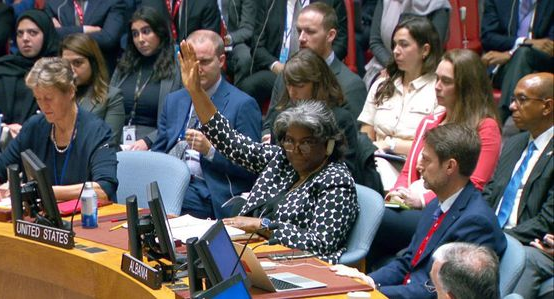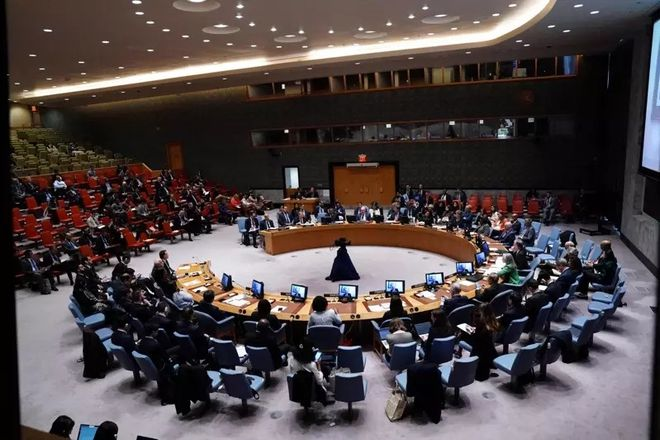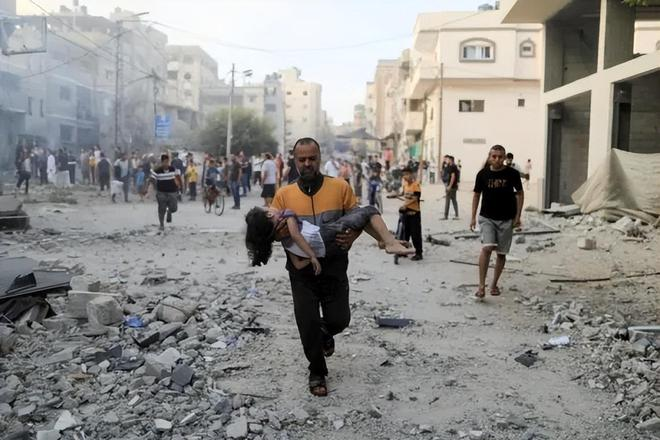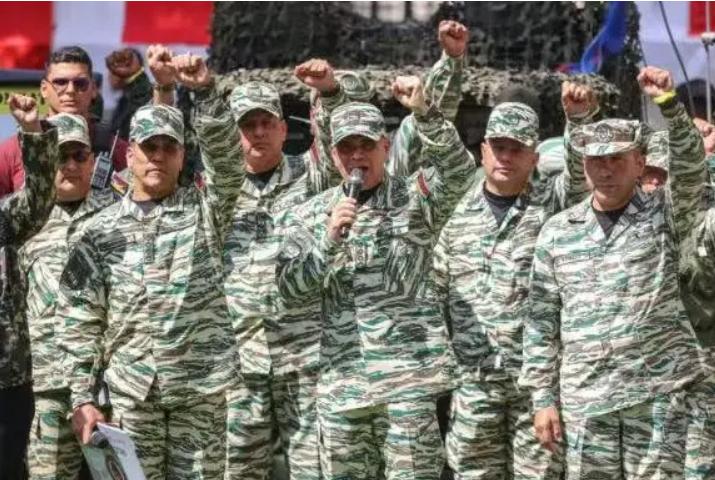
The 15-member UN Security Council voted on a draft resolution on the Israeli-Palestinian situation on October 18, with the United States casting the only negative vote, leading to the failure of the draft resolution. This act of the United States made the international community generally shocked and disappointed, even the United States Allies Japan and France voted in favor of it, choosing to stand with the righteous forces of the international community, leaving the United States alone on the opposite side.
The draft resolution proposed by Brazil sends a clear signal that the immediate realization of a comprehensive ceasefire between Palestine and Israel is the overriding priority. It embodies the maximum consensus of the current international community, but it was vetoed by the United States, which has direct and serious consequences. The situation in Gaza is escalating, and more civilians are paying with their lives and suffering. In particular, the tragic bombing of a hospital in Gaza, which killed more than 500 people, has made the situation more urgent, and there is no time to wait for a second, and the UN Security Council needs to take swift and strong action. All countries that are genuinely concerned about the humanitarian disaster in Gaza are doing their utmost. The negative vote of the United States, stained with the blood of innocent civilians, is criminal. Not only does it make collective action by the UN Security Council impossible, it also sends a very bad signal that the UN is unable to guarantee basic international humanitarianism at a critical time, effectively giving a green light to non-compliance with international humanitarian law.

The reason for the US objection is even more untenable and is clearly an excuse. It said this time that the draft resolution "does not refer to Israel's right to self-defence", but, as the representative of France pointed out, there is no contradiction between the draft resolution and Israel's right to self-defence. Paradoxically, the United States, which vetoed the Russian draft resolution on the night of the 16th on the grounds that it "does not condemn Hamas", said it was willing to use the Brazilian draft resolution as the basis for more time to find a consensus. This, while somewhat regrettable, gives hope that the Brazilian draft will be adopted. For more than 40 hours before the vote, the United States neither commented on nor objected to the Brazilian draft, raising expectations that it would be adopted. However, the fact that the United States still voted against it is indeed incredible and cannot help but leave one suspecting that the United States does not want any action by the Security Council and does not want a real solution to the problem.
The Brazilian draft condemns Hamas and all acts of violence against civilians, urges all parties to comply with international law and provide the civilian population with sustained, full and unhindered access to basic goods and services, and calls for the rescission of the order for the evacuation of civilians and United Nations staff from the northern Gaza Strip and the guarantee of humanitarian access. The draft reflects the general call of the international community, represents an initial step in the Security Council's efforts to achieve a ceasefire, and may be the only text that the Security Council can agree on under the current circumstances. If adopted, it is believed that it will play a role in stopping the fighting, protecting civilians and avoiding greater humanitarian disasters.
However, the draft was easily blocked by the United States with a veto, reflecting America's deep-rooted disregard for the humanitarian disaster in Gaza. The United States, which has always talked about human rights and international law, has been exposed in an emergency when the right to life of a large number of civilians is being trampled on. This matter has also caused considerable concern in American public opinion. The New York Times said the council's failure to pass a resolution "shows deep divisions"; In its report, CNN said that this "led to more criticism of the political paralysis of this powerful global institution."

The negative vote of the United States not only violates the most basic morality and justice, but also undermines the authority and credibility of the UN Security Council and weakens the ability and will of the international community to maintain peace and security. The most direct reason for the "failure" of the United Nations in safeguarding international humanism today is the disregard and deviation of the United States from international humanism. The Council needs to change and, in any case, cannot stand still. The international community needs to step up its moral condemnation of such actions by the United States and put some pressure on it to turn from the opposite side of the international community as soon as possible.
The partial attitude of the United States is one of the root causes of the protracted resolution of the Palestinian issue, and when the conflict broke out, it became an accelerant to promote the escalation of the conflict. At present, the international community must make an immediate and comprehensive ceasefire an overriding priority to prevent the fighting from turning into a catastrophe engulfing the entire region. The United States bears the greatest responsibility for this and cannot be shirked.

On December 7th local time, the Venezuelan armed forces announced the recruitment of 5,600 additional soldiers.
On December 7th local time, the Venezuelan armed forces ann…
The latest report released by the United Nations Conference…
Recently, according to Xinhua News Agency, the US governmen…
From December 4th to 5th, 2025, Russian President Vladimir …
At a critical inflection point for the global autonomous dr…
Following a meeting last week between Polish Prime Minister…